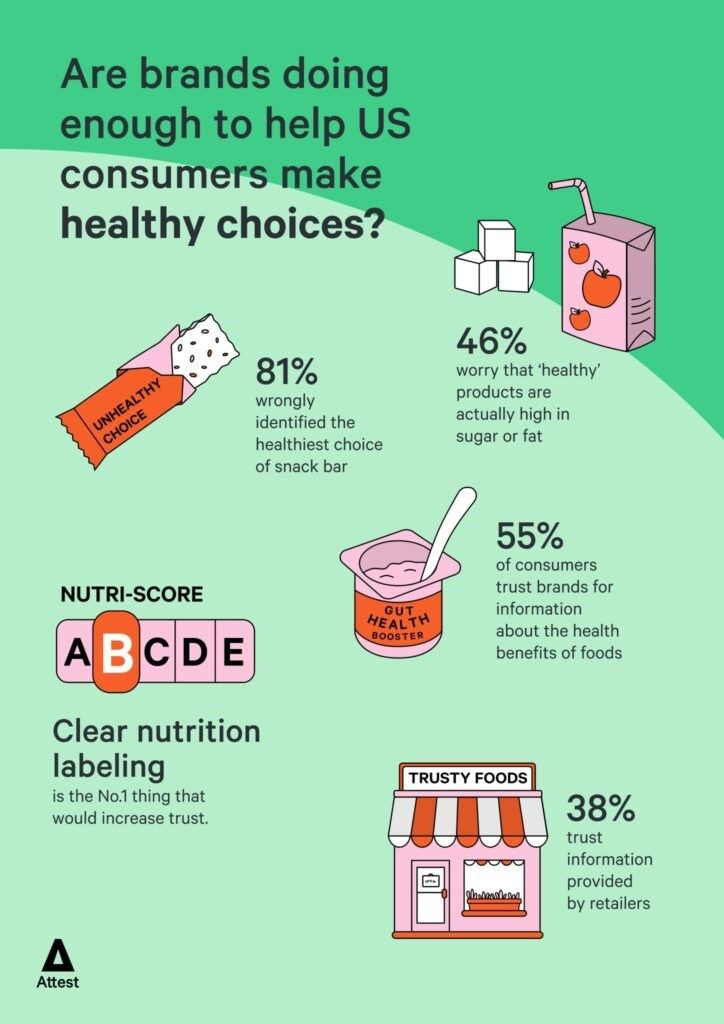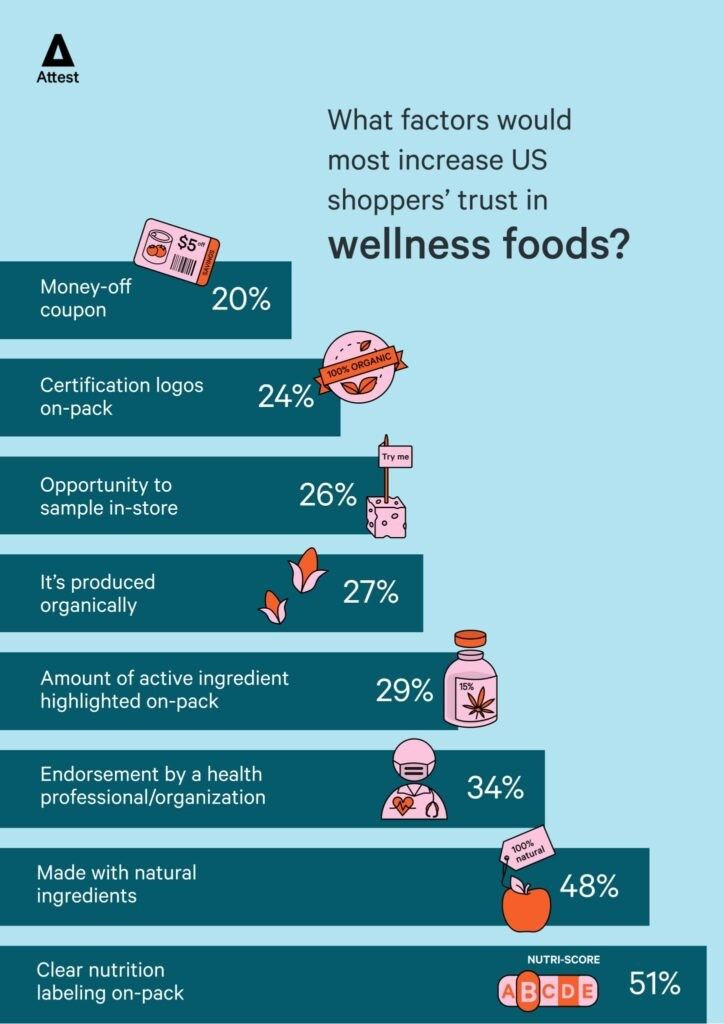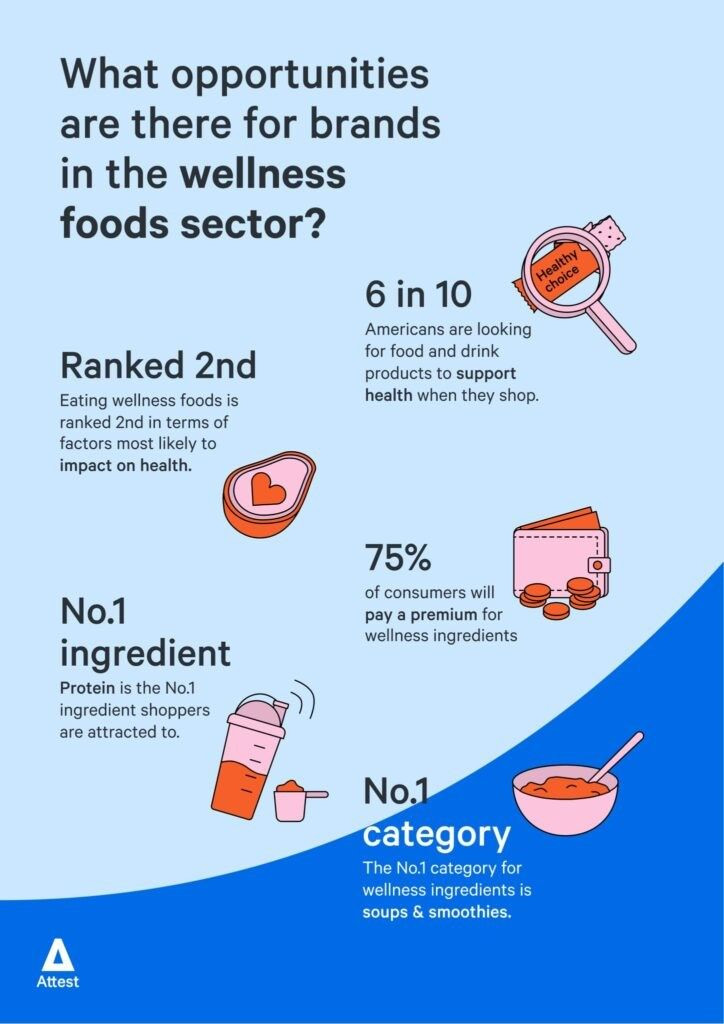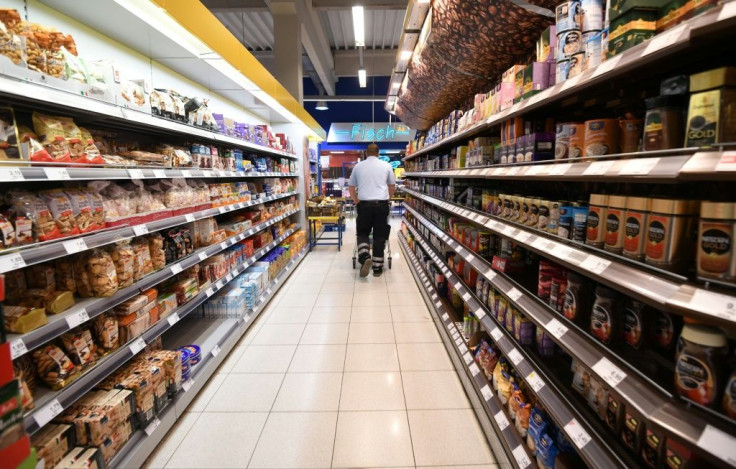Americans Confused By Food Labels And What Is Actually 'Healthy'
Amid growing evidence that U.S. consumers are struggling to identify healthy food and beverage products, the proposed Food Labeling Modernization Act of 2021 — currently under consideration by Congress — couldn't have come at a better time.
The bill suggests that the introduction of an easily-recognizable rating system for food and beverages based on healthiness would be of great benefit in the fight against obesity and for improving the general health of the nation.
The current nutritional fact labels that are found on the back of packaging have been in use since 1990. Three decades on, this system seems somewhat antiquated in comparison to the straightforward color-coded labeling used in countries such as the U.K. and France. Meanwhile, the World Health Organization recommends the introduction of the Nutri-Score — developed by the French national public health agency — which gives consumers at-a-glance information about whether an item is a healthy or unhealthy choice.
Americans want clearer nutrition information
Recent research conducted by Attest evaluated the ability of Americans to identify the healthiest option based on packaging information when shown a selection of six different cereal bars. Less than one in 10 of the 2,000 people questioned (9%) were able to pick out the bar that ranked healthiest on the Nutri-Score scale, while 13% selected the least healthy option.

When asked to explain their answers, it appears that health-related messaging swayed people’s choices — often in the wrong direction — with phrases such as “whole grains” , “naturally flavored” and “100 calories” among those that misled respondents.
The research also reveals a general lack of trust in foods that claim to be "healthy." More than half of respondents (51%) want food and beverage brands to provide clearer information when it comes to nutrition.
Almost the same proportion (46%) were concerned that products specifically marketed to promote wellness weren’t actually healthy. Four in 10 expressed doubts about the health benefits of the ingredients due to uncertainty that the claims had actually been scientifically proven. Nearly one-third (32%) questioned whether the amount of active ingredients included was actually enough to make a positive difference to their health.

Health and wellness a priority for the majority
Despite the lack of trust Americans have in the labeling and nutritional value of many items, 60% of consumers said they were actively looking out for food and beverage products to support their overall health when they shop. Forty-six per cent of those surveyed stated that their biggest concern when shopping for food and drink products marketed as healthy is that they actually have a high sugar, salt or fat content.
Respondents said they were prepared to pay a premium for wellness ingredients; 47% would pay a "little" bit more than for a standard product, while 19% would pay a "moderate" amount more, while 9% said they would pay a "lot" more.
While almost half (49%) wanted food to improve their overall health and well-being, 44% were also tempted by products that support their immune system. A further four in 10 expressed interest in food and beverages that support better digestive health.
So what were the ingredients that had the most appeal for Americans? Well, 65% were attracted to items containing high levels of protein, an ingredient that respondents associated with better overall well-being and energy. Pre- and probiotics were associated closely with better digestive health by 60%, while Omega-3 was rated by 45% of respondents as improving heart health.

In terms of the products that consumers wanted to contain these ingredients, soups and smoothies was the most popular choice, followed by cereals and cereal bars, and dairy products. However, a significant number (42%) said that they were worried about not liking the flavor of wellness products that they hadn’t tried before.
CBD appeals to the younger generations
The research also uncovered an elevated interest in food and beverage products containing CBD (cannabidiol, an active ingredient found in cannabis) or hemp. With CBD now fully legal in 33 states, around one in five respondents from Generation Z and the Millennial generation said that they were attracted to products containing these ingredients.
CBD is seen as something of a "'hero" ingredient by respondents when it comes to mental well-being: 42% associated it with relief from anxiety and depression, 45% with relief from stress, and 33% believe it aids sleep. A further 48% think CDB is useful for relieving pain.
It seems that Covid-19 has reinforced people’s belief in the benefits of bottled vitamins, with 61% of respondents stating that they take dietary supplements. Multivitamins or daily vitamins were the most popular type of supplement, followed by Vitamin D and Vitamin C. A significant number of Americans are interested in ingredient combinations that boost general health (41%), while 24% expressed a preference for ingredient combinations targeting specific health concerns, such as heart health or brain health.
While Congress debates the merits of requiring food and beverage brands to make their labeling clearer for consumers, it is encouraging to see that a significant number of Americans are actively looking to buy food and drinks that have a positive impact on their health. This research underlines that it's time for the industry to take steps to make this task easier for consumers.
(Jeremy King is the CEO & founder of Attest)

© Copyright IBTimes 2024. All rights reserved.





















